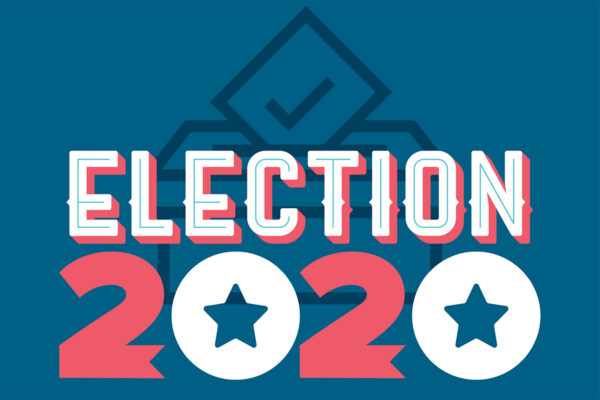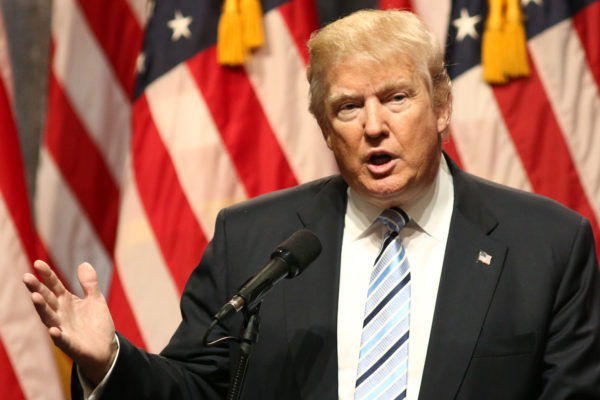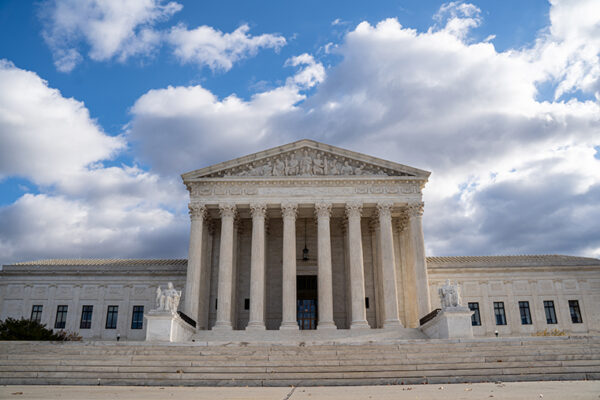Election Day turned into Election Week, then two months of corrosion, court cases, controversy and, ultimately, tragedy in the citadel of U.S. democracy.
America continues to suffer — from the pandemic, from economic fallout and mass unemployment, from social and political fissures.
Amid this backdrop, change arrives in two of the three branches of the U.S. government: President Joe Biden and Vice President Kamala Harris as well as a new cabinet assumes control upon the Jan. 20 inauguration, and a retooled Congress, with both the House of Representatives and Senate either closely or evenly split among Republicans and Democrats.
Faculty experts from across Washington University in St. Louis draw upon their research, their instruction, their experience and their thought leadership to proffer insight and ideas for the new administration, the new beginning.
(If available, full articles are linked in boldface at the bottom of each entry.)
Politics and social justice
‘An historic opportunity to combat systemic racism’
On Jan. 26, President Biden signed four new executive orders collectively aimed at addressing racial inequality and justice. The actions strengthen anti-discrimination housing policies, instruct the Justice Department to not renew contracts with private prisons, increase the sovereignty of Native American tribes, and denounce violence and xenophobia against Asian Americans and Pacific Islanders.
John N. Robinson III, assistant professor of sociology in Arts & Sciences says the COVID-19 pandemic, which has disproportionately impacted racial minorities, combined with the Black Lives Matter movement, has created an historic opportunity to address systemic racism and inequality in the U.S. But while Biden’s executive orders are an important first step, they’re just that — a first step. There is still much work to do.
“It’s important to remember that Biden’s ‘agenda’ is in many ways not his own. It’s because of ongoing political engagement and pressure that Biden feels it necessary to pursue these aims, and that we have this historic opportunity before us,” Robinson said. “By all means, we need to keep that pressure going, which means that we need to maintain a different kind of relationship to a Biden administration than we had with Obama.”
Read more of Robinson’s perspective on the executive orders and what it will take to achieve Biden’s ambitious agenda.
‘American democracy is in grave danger’
Near the start of his inaugural address, President Biden declared: “This is democracy’s day.” The peaceful transfer of power, he suggested, showed that democracy in America had “prevailed.” As a political scientist who studies the theory and practice of democracy, Clarissa Hayward, professor of political science in Arts & Sciences, respectfully disagrees.
“Even minimalist definitions of democracy stress the importance of political equality, electoral accountability, and a willingness to abide by the rules of the democratic game,” Hayward said. “In the past four years, this country has been the site of new and renewed efforts at voter suppression; resurgent white nationalism; the growth of a radical right wing of the GOP base to which the party’s elites are increasingly beholden; and the renunciation of basic democratic principles, not only by public officials but also by many private citizens.
“The view that American democracy survived the Trump stress test is overly sanguine. To the contrary, the would-be authoritarian rulers waiting in the wings— the Ted Cruzes and the Josh Hawleys — have seen just how close a politically incompetent TV personality came to overthrowing it.
“American democracy is in grave danger. Reforms to the rules and institutions that grant the white Christian minority disproportionate power and influence—including but not limited to the electoral college system, partisan gerrymandering, and threats to voting rights in the wake of Shelby County v. Holder—must be a top priority of the new administration.
“On inauguration day, Biden told the nation: ‘Today, we celebrate the triumph not of a candidate, but of a cause, the cause of democracy.’ Before we celebrate, we have work to do.”
Confronting extremism
David Cunningham, professor and chair of sociology and author of “There’s Something Happening Here: The New Left, the Klan, and FBI Counterintelligence,” offered a caution about President Biden’s pledge to “confront and defeat the rise of political extremism, white supremacy and domestic terrorism.”
Cunningham advocates for learning from the nation’s past to avoid unintended consequences when confronting extremism. It’s an area he knows well, having studied the complex roles that the Ku Klux Klan played in various communities throughout the 1960s and the enduring impacts of KKK activity – and other extremist groups — on contemporary voting patterns and crime rates.
“Right-wing extremist groups tend to most successfully organize in times when their potential followers feel threatened — that their way of life is under siege. So, we saw significant bumps in the number of active militia and hate groups following the 2000 Census, which spawned the big news that white citizens would be in the minority in the U.S. by the 2030s, as well as around Barack Obama’s election in 2008,” Cunningham said.
“Trump’s defeat signals a similar closing of a window that openly equates ‘greatness’ with white advantage, and white nationalist and extremist groups play on that with calls to defend ‘their’ country and way of life.”
Read more specifics in Cunningham’s analysis of the modern-day rise of extremism.
Health care
Karen Joynt Maddox, MD, an expert and researcher in hospital and health-system efficiency among many other aspects of modern-day health care, expects the new Biden/Kamala Harris administration to retool and reinforce Obamacare, rather than the previous administration’s failed attempts to repeal and replace.
As co-director of the Center for Health Economics and Policy, an assistant professor in the cardiovascular division of the School of Medicine and a cardiologist, she has both worked under and scrutinized the Affordable Care Act also known as Obamacare — launched while President Biden was vice president. She offers areas ripe for both quick and gradual change: insurance ratings; inclusion of the self-employed; lower payments to Medicare clinicians and hospitals; and more competition-inducing and enrollment-broadening initiatives.
“While the Affordable Care Act was an enormously important piece of legislation, it was not a perfect one. In more typical times, a bill as large as that one would have undergone a number of bipartisan fixes already — things like shoring up issues with insurance rating areas, streamlining Medicare payment policies, and so forth. In part due to the contentious way in which it was passed in the first place, many Republican policymakers, including [then Senate Majority Leader] Mitch McConnell, essentially refused to participate in any fixes short of repeal. Now that repeal is realistically dead, I hope we can have conversations across the political spectrum on how we could pass legislation to improve access, quality and outcomes of health care in this country.”
Read more in Joynt Maddox’s analysis of health care changes.
Energy
Geophysicist Michael Wysession, professor of earth and planetary sciences in Arts & Sciences, teaches a popular undergraduate course called “Energy and the Environment” and is author of The Great Courses lecture series “The Science of Energy: Resources and Power Explained.”
To Wysession, “Trump’s energy ‘policy’ ranged from non-existent to ignorant, with reactionary (and failed) attempts to bolster the collapsing coal industry and sell off protected land for oil and gas leases.
“Anything Biden does will be a vast improvement,” Wysession said. As for re-engaging with other countries on climate efforts, including rejoining the Paris accords, “Rejoining is not as easy as you might think, but four years gives this administration plenty of time. Biden will have a tougher time convincing other countries that he can set enough things in motion to prevent another major setback should an administration as anti-science as Trump’s return in 2024.
“Biden wants to initiate, reinstate and/or increase vehicle fuel economy standards, methane pollution limits and bans on new oil and gas leases. … This is all doable. … [Also,] Biden wants to make buildings more energy efficient and install half a million public EV charging stations by 2030. This is strongly supported by Biden’s proposed nominee for Secretary of Energy, former Michigan Gov. Jennifer Granholm, an effective leader who pushed for EVs in Motown as a way to create jobs and boost the economy during the killer recession a decade ago. Granholm’s focus has long been in moving away from fossil fuels and toward renewable energy sources.”
Read more specifics in Wysession’s analysis of the 9-point Biden energy plan.
Climate change
The politics
Preventing conflicts aggravated by climate change requires a faster and different approach than addressing climate change itself, according to an op-ed by Tarek Ghani, assistant professor of strategy at the Olin Business School and, this time a year ago, a consultant to the presidential campaign of incoming Secretary of Transportation Pete Buttigieg.
On average, economists report, a rise in local temperature of half a degree Celsius is associated with a 10% to 20% increase in the risk of deadly conflict, according to “Climate Change Doesn’t Have to Stoke Conflict: Politics Matter More Than the Environment When It Comes to War and Peace,” in Foreign Affairs magazine.
“If accurate, that means the likelihood of such strife is swiftly rising,” write Ghani and co-author Robert Malley, president and CEO of the International Crisis Group.
Read more about Ghani’s co-authored op-ed.
Renewing environmental and climate efforts
On Nov. 4, 2019, the United States officially announced that it would withdraw from the Paris Agreement, effective one year later. Beth Martin was among the Washington University faculty to comment then on the Trump administration’s withdrawal notification to the United Nations.
“The Biden Administration has indicated that it will rejoin the Paris Agreement on Day One,” noted Martin, a teaching professor in environmental studies in Arts & Sciences and associate director of the Washington University Climate Change Program.
“Rejoining means putting forward new ambitious national commitments (the so-called nationally determined contributions) aimed at meaningfully and equitably contributing to the global goal of limiting warming to no more than a degree and a half. The new administration has an opportunity to demonstrate leadership internationally through setting ambitious goals and domestically by initiating a collaborative process building national goals that are interconnected with subnational action.”
Justice and the Supreme Court
Dan Epps is co-author of the paper behind an oft-cited idea: changing the U.S. Supreme Court beyond its standard nine appointed justices. Epps, an associate professor in the School of Law, wrote “How to Save the Supreme Court” in 2019 with Vanderbilt’s Ganesh Sitaraman, recommending two alternative reform proposals: the Supreme Court Lottery and the Balanced Bench. Read more about it here.
“President Joe Biden will face extraordinary challenges as he assumes the presidency,” Epps said. “He’ll need to handle a devastating pandemic and a reeling economy. And he’ll also have to work hard to restore legitimacy to institutions badly damaged by the Trump administration, such as the Department of Justice.
“Getting any signature legislation through will be quite difficult, given how closely divided the Senate is, with Democrats having the edge only because of Vice President Kamala Harris’ tie-breaking vote. Even if Biden and the Democrats are able to enact any kind of signature legislation, there’s the looming presence of the Supreme Court, on which Republican-appointed justices have a 6-3 majority and who may block major reforms favored by progressives.
“Finally, Biden will face opposition resulting from President Trump’s extraordinary effort to sow mistrust and delegitimize Biden’s electoral victory by his false claims about election fraud. How much Biden is able to accomplish is anyone’s guess, but he does have a long career in politics to draw on as he navigates the challenges ahead.”
The economy
The American Rescue Act
The price tag is steep: $1.9 trillion. But the need is huge, with “human and economic problems” that require immediate attention as pledged in the new administration’s American Rescue Act, says Steve Fazzari, the Bert A. and Jeanette L. Lynch Distinguished Professor of Economics in Arts & Sciences.
The “U.S. economy is stalling, if not regressing,” Fazzari writes. There were 140,000 jobs lost in December alone. Unemployment claims rose in the early weeks of 2021. It’s no surprise economic barometers are weak given COVID-19’s record numbers of U.S. infections, hospitalizations and deaths. Combined, “they signal an economy in need of help.
“Fortunately, some parts of mainstream economic thinking appear to have learned the lessons of the past few decades that fiscal stimulus from a government that controls its own currency can be enormously helpful in containing economic crises. The United States and many other countries suffered more than we had to in the Great Recession due to overblown fears about too much government borrowing. We should not repeat that mistake now.”
Read more specifics in Fazzari’s article in The Institute for New Economic Thinking.
R&D stimulus should focus on the D
Research and development is the key expertise of Anne Marie Knott, who developed the metric known as the Research Quotient (RQ), the only innovation metric that reliably predicts firm value. With the new presidential administration announcing its economic-policy intention to invest $300 billion in research and development, there is a key voice offering the caution: Aim for the development end.
That is the counsel of Knott, the Robert and Barbara Frick Professor in the Olin Business School.
“President Biden has his work cut out for him in ensuring ‘a future made in all of America … where the United States wins … the jobs and industries of tomorrow.’
“The most important thing he can do in the short-run is dedicate the $300 billion additional R&D to development (D) rather than research (R).
“This level of investment could indeed bear fruit, but not if targeted at research,” Knott said. “There has indeed been a dramatic decline in federal R&D support, but the decline is not in research. It is entirely in development. In fact, the decline in American R&D productivity tracks the decline in federal development almost perfectly. The decline in federal development is therefore the most likely culprit for the decline in R&D productivity. Thus, investing in research is solving the wrong innovation problem.”
Read more specifics about the research and development stimulus.
Minimum-wage increase, targeted stimulus and more coming
Millions are out of work. Their inability to pay mortgages, rents or bills impacts millions of others. The pandemic has left the United States in a tenuous shape, emotionally, physically and fiscally.
Radhakrishnan Gopalan knows the pandemic-addled plight of the middle and under classes in America, having closely researched such things as minimum-wage increases (a Biden federal proposal) and households/mortgages. Gopalan, professor of finance in the Olin Business School, narrows it down to two major challenges: consumer debt — don’t forget the most crippling one of all, student debt — and job retraining.
The hospitality and transportation industries may never return to previous levels; certainly, their laid-off employees won’t return, Gopalan said. “This means retraining and repositioning the workers in these sectors. And the virus has resulted in many structural changes in the way we work [from home, primarily] and enjoy leisure, and this would involve refocusing our investment in infrastructure.” He also foresees a stimulus package followed by green and digital investment, stimulus/revival for specific hard-hit industries, health-care initiatives and, eventually, a widespread minimum-wage increase.
Read more specifics about the overall economic outlook and about instituting minimum-wage increases.
Mask mandate
One of President Biden’s first executive actions will be implementing a national mask mandate on federal property – a move that will not only help to slow the spread of coronavirus, but may also boost the economy, according to Raphael Thomadsen, professor of marketing in the Olin Business School.
Thomadsen was part of a November 2020 study finding that in communities where masks were mandated, consumer spending increased by 5% on average, showing that a safety rule can stimulate economic growth as well.
The effect was greatest among non-essential businesses, including those in the retail and entertainment industries — such as restaurants and bars — that were hit hard by the pandemic.
“The findings exceeded our expectations and show that we can have a strong economy with strong, commonsense public-health measures. Mask mandates are a win-win,” Thomadsen said.
Read more specifics about the mask study.
Corporate responsibility
Actually, it doesn’t seem to matter who’s in the White House: Business leaders are acting with their conscience, with their corporation’s conscience, in accordance with the public’s conscience.
“In recent years — years when Trump has been in the White House — we have seen seismic shifts in the conversation around business social responsibility, driven by business community A-listers like the Business Roundtable, Larry Fink/Black Rock and The World Economic Forum,” said Stuart Bunderson, director of Olin’s Bauer Leadership Center and the George & Carol Bauer Professor of Organizational Ethics & Governance. “That conversation is what has been driving change, and the trajectory and momentum of that conversation seems unlikely to be affected by who is in the White House.”
Added Jackson Nickerson, the Frahm Family Professor of Organization & Strategy Emeritus: “The federal government has been in a political tit-for-tat stalemate for decades and, as a result, has failed to respond to the fact that the American dream is now unattainable for most Americans. This failure means that the government has not adjusted its policies and come up with a new social contract for America.
“Without a new social contract, Americans increasingly appeal to the only wealthy organizations that can tackle policy problems: corporations. The fact that we’re seeing growing appeals to corporations is simply an indicator of increasingly failed politics, which largely is driven by political parties to drive fundraising and control policy.”
Read more specifics from Bunderson and Nickerson.
Jill Young Miller, Talia Ogliore, Sara Savat, Neil Schoenherr and Julia Evangelou Strait contributed to this story.
.



